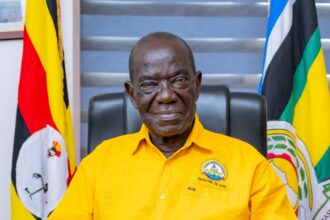A new report by Oxfam Uganda, launched on Friday, has revealed that unjust land systems and weak dispute resolution are the drivers of both land and income in quality in Uganda.
A report named ‘Locked Out’ indicates that poor people, the vulnerable, young people and those living in rural areas have been seriously affected by weak laws on land and have been locked out from enjoying their land rights.
In Uganda for over 30 years land disputes have become a thorn in fresh that even made President Museveni institute a whole commission of inquiry to find out land defaulters however up to now nothing has been made to stop the issues of land in Uganda from escalating.
According to the report, 80 per cent of rural areas in Uganda experience more poverty rates than urban areas whose poverty rate is at 30 per cent.
While presenting the report, Dr Fred Muhumuza from Makerere University said that the difference in percentage shows that people in the rural areas are three times more vulnerable than those in urban areas meaning they are three times more likely to slip back into poverty in case of shocks such as failed crops, death or sickness.
“People providing paid agricultural labour and substance farming are more likely to be poor than those whose main income is commercial farming or other non-agricultural enterprises. Poverty rates among paid labourers in the agricultural sector stand 35 per cent while for subsistence farming it 32 per cent,” said Muhumuza.
He added that inequalities have not been solved by attempts at legal and policy reform, most important policies with the potential to change the terrain of land inequality amongst vulnerable groups have failed to see the light of day.
The report comes in a time when Uganda for the past year has been grappling with increased land disputes like the Lusanja dispute in Wakiso district, Apaa land disputes in Amuru and other land disputes in the oil-rich Albertine Graben region and several other places that have left hundreds landless.
While speaking at the launch, Oxfam acting Country Director Edward Tumwebaze said that the solution to land inequality lies in the better laws and policies and in uprooting traditional development.
“Rich people have used the advantage of women since most of them are less educated to take the land. Even new government policies have let investors take people’s land and compensate them with money less than their actual value of land, ” said Tumwebaze.
She added that the government has continued to protect the rich leaving the poor people suffering.
Currently the most frequent land relate to boundaries, rights of way or access 36 per cent, ownership or use 25 per cent, land grabbing 22 per cent and missing or unclear land titles 4 per cent However the large backlog of court cases on land disputes are increasing currently they are 3,846 cases waiting to be heard at the High court in Kampala alone.
However, Minister of State for Lands, Housing and Urban Development (Lands) Namuganza Persis said that government is to enact laws that will strictly prohibit people from evicting rich people from less privileged people from their land.
“Government has taken steps to address the issues of land inequality because land inequality increases poverty, this entails limited access to land, lack of land ownerships by marginalised and vulnerable groups, it also inhibits growth and increases food insecurity,” she said.
Do you have a story in your community or an opinion to share with us: Email us at Submit an Article






